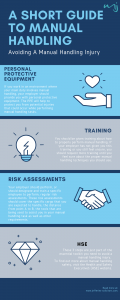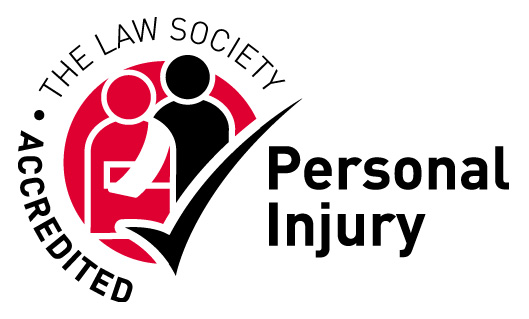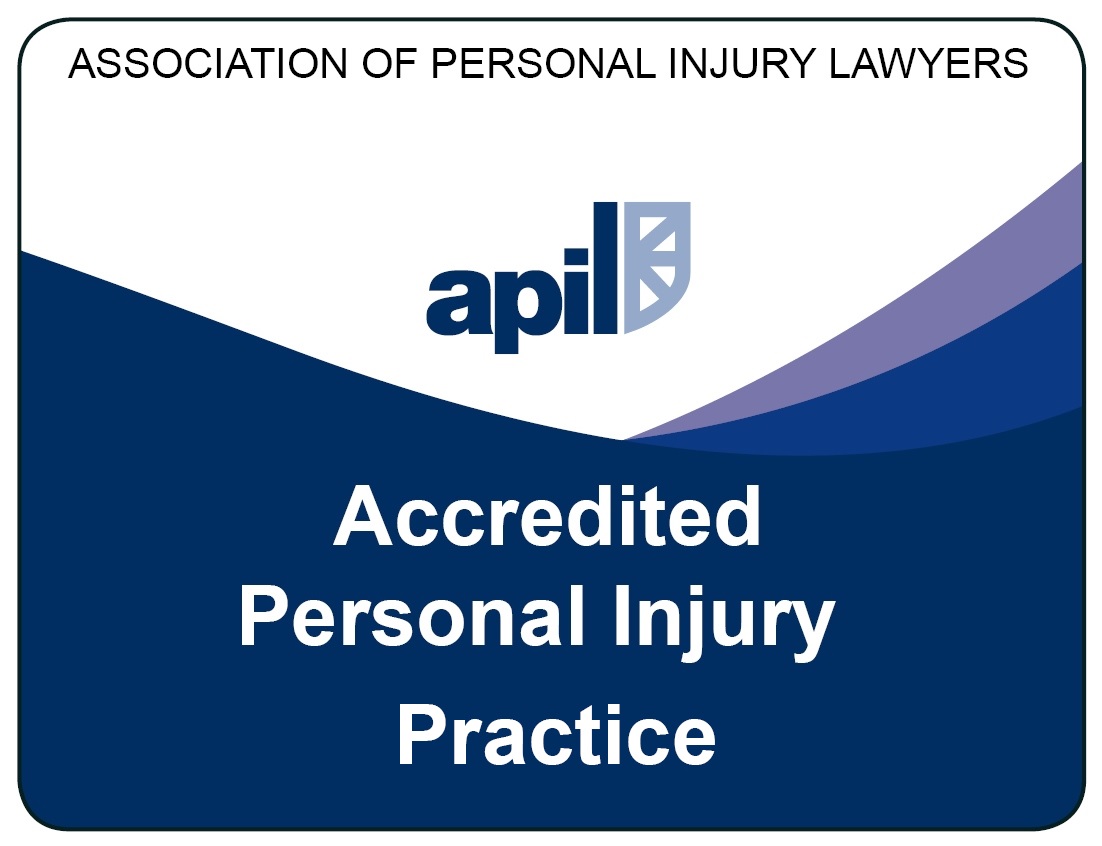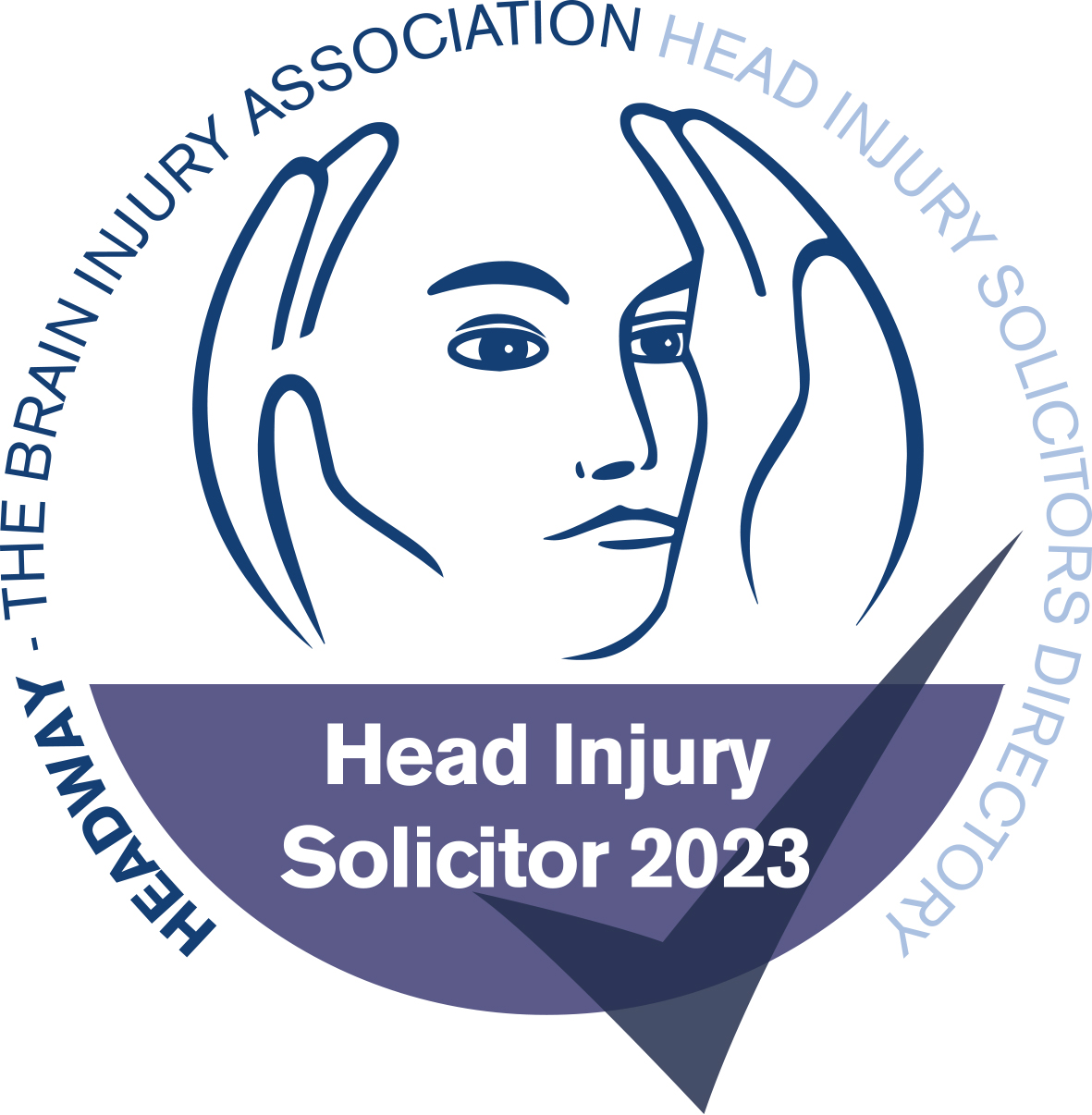




Injuries caused by manual handling
Manual handling is an umbrella term that refers to actions that involve lifting, carrying, lowering, pushing, or pulling items. Manual handling is often associated with certain specific professions and workplaces, such as a building site, a warehouse, or a factory. However, manual handling is often part of the job in other environments like an office or a bank.
Manual handling injuries can impact upon a lot of different areas of the body but the neck, back, shoulders, arms and feet are the most commonly impacted areas. It’s important to know how you can avoid suffering from a manual handling injury, no matter your profession. Jefferies Solicitors have outlined three areas of health and safety to keep in mind about manual handling in the workplace.
Click to view the infographic:
Contact us today on 0800 342 3206 or through our online form to discuss your case.
Personal Protective Equipment
Your employer should provide you with personal protective equipment if you work in an environment that requires a heavy amount of manual handling. These sorts of environments would include a building site or a warehouse. If you work in an environment like this, your employer should provide you with:
- A hard hat.
- Work gloves.
- Steel toe capped work boots.
- A hi-visibility jacket if you work in an area where there are moving vehicles, such as forklifts.
If your employer has failed to provide you with this sort of equipment, you could be able to claim compensation as a result. This equipment will help to protect you from potential injuries that could occur while performing manual handling tasks. For example, if you drop an item that you are carrying, then your shoes should be able to protect your toes and feet from being seriously injured.
Similarly, sturdy work gloves should help to protect your hands from developing lacerations or blisters due to carrying items around.
TRY THE ONLINE ELIGIBILITY CHECKERThere are certain injury types that are more likely to occur as a result of using poor manual handling techniques:
- Injuries to your back
- An exacerbation of a pre existing back problem
- Tennis or Golfer’s Elbow
- Injuries to your shoulder
If you start to suffer from any of the above symptoms and you think that these are related to your work, you should seek medical attention from your GP. You should also inform your employer/ personnel department immediately so that steps can be taken to rectify the problem. Similarly if you have time off work due to any symptoms that you think are work related it is important that you notify your employer of this at the time of reporting your absence and in your return to work interview.
Training
All staff should be given training about how to properly perform manual handling. If your employer has not given you this training or you still feel unsure, you should request more training until you feel sure about the proper manual handling techniques you should use. If you are performing a manual handling task you should:
- Not twist your back or lean sideways while lifting something or carrying the item or placing it down.
- You should turn by moving your feet rather than trying to twist the upper half of your body.
- You should keep your head up so that you can see your surroundings and so that you do not get a neck-ache when carrying the item.
- You should know the route that you want to carry the item to so that you know whether it is in your capabilities before you begin the task.
- Someone should not be expected to carry something that is too heavy for them.
- One person should not be expected to carry something that requires two people to lift and carry.
- Tools, should as trolleys and belts, should be provided by your employer if you work in an environment that requires a lot of manual handling.
If you would like to find out more about the specific techniques you should use to safely complete a manual handling technique, visit the Health and Safety Executive’s (HSE) website here.
Lots of manual handling injuries develop over a long period of time due to continuous strain being placed upon that area of the body. This sort of strain is usually caused by an employee not knowing or not following the proper manual handling techniques. If you know the proper techniques to follow and continuously use them, you will reduce the likelihood of you suffering a strain-related injury.
If you work in an office or another similar environment where manual handling is an irregular occurrence rather than part of your specified job role, some of this information might not be relevant to you. If you work in this sort of environment, you should consider whether what your employer is asking you to lift and move is unsafe based upon your capabilities.
This is especially important because it is unlikely that you will have been given proper manual handling training within this sort of environment, so you will have to use your personal judgement and skills a lot more. If you feel that what your employer is asking you to do is beyond your capabilities and generally unsafe, do not be afraid to question them. Protecting your health is paramount.
Risk Assessments
Your employer should perform, or should designate and train a specific employee to perform, regular risk assessments. These risk assessments should cover the specific cargo that you are expected to handle, the distance from point A to B, the tools that are being used to assist you in your manual handling task as well as other requirements. To find out more about what should be included in the risk assessments, visit the HSE website.
It is also important to remember that you have a three-year time period to make a personal injury claim. This time period begins from the initial date that your symptoms develop. However, if you are still working for the same company in the same role and your symptoms started more than 3 years ago then they still may be able to claim. Furthermore, if you have continued to have symptoms related to your injury but you left that company within the last 3 years you could still claim.
Contact Jefferies Solicitors
Our experts at Jefferies Solicitors are well experienced in dealing with a range of different case types. We understand how traumatic sustaining an injury or developing an illness can be and so we want to make the process of claiming compensation as stress-free as possible. No matter exactly where you are located throughout England and Wales, we can help you.
At first, we will need some initial details about the specifics of your injuries and how this has impacted your life. Contact us today on 0800 342 3206 or through our online form to get started. A member of our team will quickly be in touch to discuss your case, confidentiality is ensured with all our clients.






